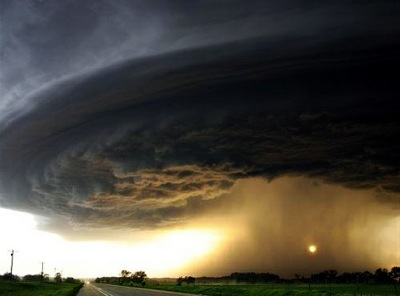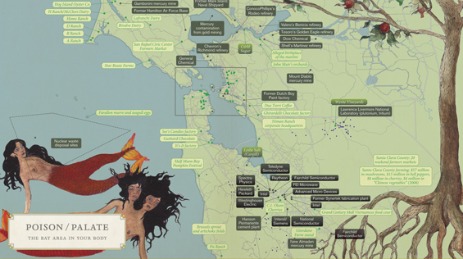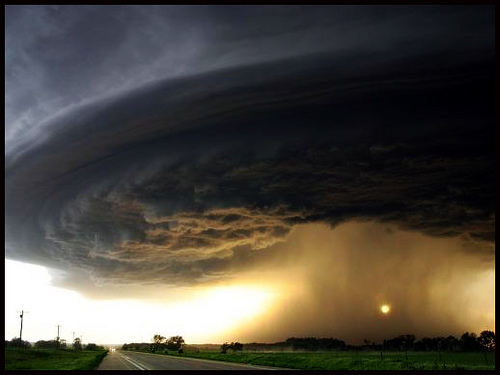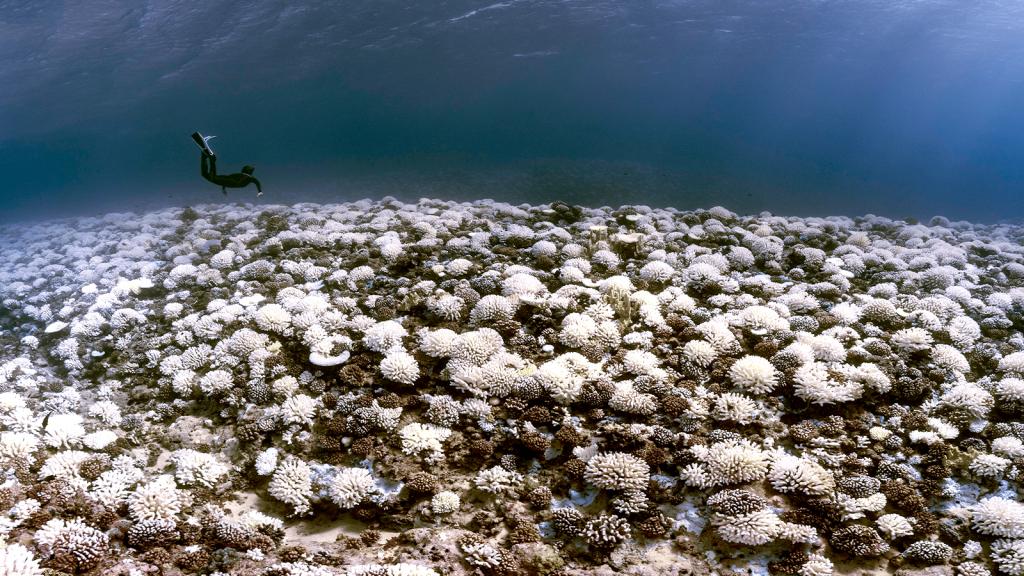 Photo: Bruna CostaWe’re gonna need a bigger boat, preferably one with two of each animal. Studies published in this month’s Nature look at the link between CO2 levels and heavy rains and floods, and find that the increase in intense precipitation over the last 50 years can’t be explained by natural variability. The question of whether any single event — Snowpocalypse, the Queensland floods, etc. — is due to climate change is historically a thorny one, but these studies show that it’s possible to analyze the human contribution to extreme weather.
Photo: Bruna CostaWe’re gonna need a bigger boat, preferably one with two of each animal. Studies published in this month’s Nature look at the link between CO2 levels and heavy rains and floods, and find that the increase in intense precipitation over the last 50 years can’t be explained by natural variability. The question of whether any single event — Snowpocalypse, the Queensland floods, etc. — is due to climate change is historically a thorny one, but these studies show that it’s possible to analyze the human contribution to extreme weather.
Extreme precipitation can only be fully explained by our overweening hubris: The first study looked at the recent increase in intense precipitation — rainstorms, snowstorms, etc. — and found that there’s been too big of a jump to be explained by natural variation, says the New York Times:
As reflected in previous studies, the likelihood of extreme precipitation on any given day rose by about 7 percent over the last half of the 20th century, at least for the land areas of the Northern Hemisphere for which sufficient figures are available to do an analysis.
The principal finding of the new study is “that this 7 percent is well outside the bounds of natural variability,” said Francis W. Zwiers, a Canadian climate scientist who took part in the research.
Human intervention increases flood risk too: Another paper looks at one specific weather event, flooding in the U.K., and finds that it can also be attributed to global warming:
The British study focused on flooding in England and Wales in the fall of 2000. The disaster cost more than $1.7 billion in insured damages and was the wettest autumn for the region in more than 230 years of record-keeping.
Researchers found that global warming more than doubled the likelihood of that flood occurring. Similar studies are now under way to examine whether last year’s deadly Russian heat wave and Pakistan floods – which were part of the same weather event – can be scientifically attributed to global warming.
Okay, it doesn’t necessarily prove that we caused Snowpocalypse — yet: RealClimate warns against overinterpreting these results:
[W]hile questions of attribution come up whenever something weird happens to the weather, these papers demonstrate clearly that the instant pop-attributions we are always being asked for are just not very sensible. It takes an enormous amount of work to do these kinds of tests, and they just can’t be done instantly. As they are done more often though, we will develop a better sense for the kinds of events that we can say something about, and those we can’t.
And the New York Times’s Dot Earth blog wants us to pay more attention to the caveats:
At the tail end of the full paper, capping a paragraph about a weak spot in the analysis — that the observed trend in extreme precipitation events exceeds what is produced by various climate models — comes a sentence about uncertainties:
“There are, however, uncertainties related to observational limitations, missing or uncertain external forcing and model performance.”
There’s no indication that those caveats (which included links to 9 cited papers) apply to the grand conclusion. Did the authors stress the uncertainties in discussions with journalists? It sure doesn’t look that way. Should the journalists have pushed harder when confronted with definitive language? To my mind, yes.
Here come climate reparations: Still, it’s a pretty freaking huge deal, says Time:
[W]e’ll need better analysis not just to predict coming extreme weather events and prepare for them — something that could have averted much of the damage from the terrible floods in Pakistan last summer — but in assigning cause and blame. That will matter for the business world-insurance companies will want to know just what caused devastating floods or storms as they pay out their claims. But it will also impact international climate negotiations. If developing countries-already on the front lines of global warming-can prove that carbon emissions from rich countries are causing what we once referred to as natural catastrophes, they may well be justified in demanding the equivalent of carbon reparations.



